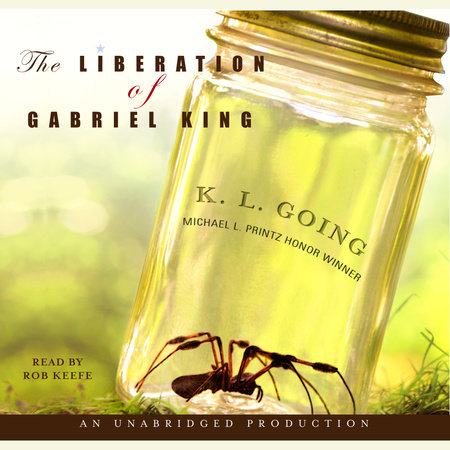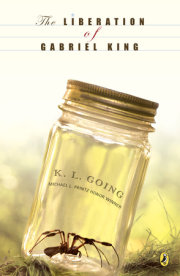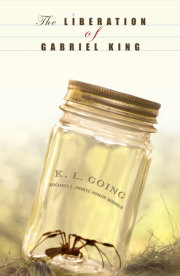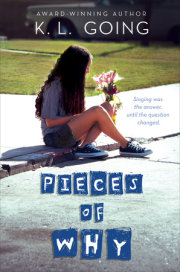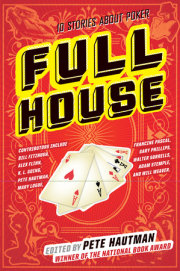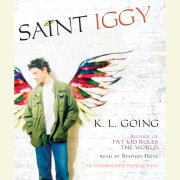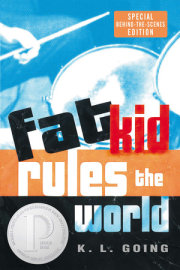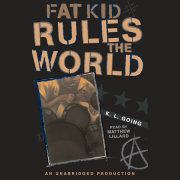Chapter 1Under the Picnic Table
My best friend, Frita Wilson, once told me that some people were born chicken.
“Ain’t nothing gonna make them brave,” she’d said. “But others, they just need a little liberatin’, that’s all.” Least that’s how Frita told it.
If you’d asked me before the summer of 1976, I would have told you I was one of the chicken ones. If you could count on anything, it was that I, Gabriel Allen King, didn’t do anything scary. I didn’t climb out too far on the branches of the pecan trees or ride my bike on the same dirt road the truckers used. I didn’t pick up ugly-looking bugs that might have pinchers or walk too close to the cotton fields if anyone even hinted that the cows might be loose. Most of all, I didn’t intend on going to the fifth grade, ever.But things don’t always work out the way you plan, and what I didn’t count on was Frita. I didn’t expect she’d decide I was one of the ones needed liberatin’, or that the best way to do it would be to overcome all our fears. I didn’t expect a lot of things, and I guess if I’m going to tell you about them, I best start at the beginning.
It was the morning of our fourth-grade Moving-Up Day, and me and Frita were under the picnic table beside the elementary school. That’s where we used to hide out during recess so nobody could find us. Only today wasn’t a school day. It was a graduation day.We could hear all the noise coming from the school yard just around the corner. Hollowell Elementary ain’t that big, but the yard was packed with a stage, rows of folding chairs, extra-tall bleachers we used for special occasions, and lots of folks who were crowding in. But all that commotion was a distant buzz because me and Frita were lying on our backs in the shade, listing all the things that made the day great.“Number one,” Frita said, “today is a momentous occasion.”Frita liked to use big words like that. Most of the time I could figure them out by how she was talking, but other times I just pretended to know. I said, “Mmm-hmm. Mooo-men-tus.”“We’re fourth-grade graduates,” Frita said. “That’s pretty great.”“Yup,” I agreed, “because now we’ve got no more school for the whole summer.”Frita pretended to write no school on the bottom of the picnic table. Then she took a big bite of a chocolate sprinkly cookie she’d gotten from the party table. The cookie crumbled all over her chin, but you could hardly notice. Frita’s got dark chocolate skin, so the cookie crumbs blended right in.“Starting today,” Frita said with her mouth full, “we’ll be upperclassmen. No more East Wing with the babies. We’ll be West Wing fifth-graders.”
Frita pretended to write west wing on the bottom of the picnic table, but I made an imaginary line through it.
“Now, why’d you go and cross that off?” Frita asked, pretending to write it back on again. Then she gave me that look she saved for when she was trying to be all innocent. Frita knew dang well that moving to the West Wing wasn’t on my list of great things.
“You’re going to love it,” she told me. “You’ll see. We’ll have our own playing field and we won’t have to eat in the cafeteria with the kindergarteners. We’ll have outside gym every day—”
“Yeah,” I said. “Outside gym with the sixth-graders. Cafeteria time with the sixth-graders and recess with the sixth-graders.”Sixth-graders meant Duke Evans and Frankie Carmen. I’d had a whole year free from torment since they’d moved to the West Wing ahead of us, but one year was definitely not enough.
“All the teachers in the West Wing are super mean,” I added, settling myself into being stubborn. “Everybody says it, so you know it’s true. And I’ll be the shortest kid there.”
“I won’t let anyone get you,” Frita told me, real solemn. “Besides, fifth grade is a whole summer away. Maybe you’ll grow taller by then.”I figured there was as much chance of me growing an entire foot over the summer as there was of snow in Georgia in June.
“Maybe,” I said.
Frita grinned. “It’ll be great,” she said. “You’ll see.” Then she sat up. “Hey, I thought up numbers three and four for our list of great things. Graduation certificates and class pictures. Where do you think I should hang my picture? Above my bed, next to the mirror, or over the dresser?”Frita’d been thinking about this ever since she got a picture frame with smiley faces on it for her birthday.
“You can hang yours up too, and then we’ll match,” she told me.
“Except I don’t have a picture frame, and there’s no way Momma can buy me one after she already bought me this outfit for Moving-Up Day. Sure would’ve rather had the picture frame.”Frita shrugged. “Then we’ll just have to make you one. That’ll be number five—starting today, we’ll do projects all summer.”
“And go swimming in the catfish pond . . .”
“And sleep in your tent . . .”
“And race our bikes . . .”Frita looked at me.
“Gabe,” she said, “I’m glad we’re friends. Good thing Daddy made me do the integrating.”Integrating was one word I knew the meaning of. Frita’d said it lots of times and I used to think it meant visiting. Turns out it really means to make something whole again. Putting the parts back together. That made pretty good sense because before the Wilsons moved here, there was a Frita-sized hole right next to me.“Wish we could sit next to each other at the ceremony,” I said. “But I’ll whistle extra loud when you get your certificate. I’ll cheer enough for ten other people and I’ll stand up and wave so you can see me from the stage.”
“Promise?” Frita asked.
“Promise.”Frita stuck out her pinky and linked it with mine. We didn’t say nothing, but I reckon Frita was thinking the same thing I was. Sure was perfect down here. I could’ve stayed there forever, only right then we heard our teacher, Ms. Murray, calling people to line up.
“Tyler Zach, Andrew Womack, Frita Wilson . . .”Frita handed me the last sprinkly cookie—the one with the most sprinkles.
“See you later,” she said, ducking out from under the picnic table.
“See ya,” I said, then I whistled one of my super-duper whistles so she’d hear just how loud I could be when I wanted. Frita turned back one more time and grinned before taking off in a cloud of dust.I lay back and thought how this was going to be the best summer ever. This was the year of the Bicentennial—the 200th birthday of the United States of America—and our very own governor, Jimmy Carter, was running for president. That meant there’d be parties, parades, and rallies. Not to mention the hugest fireworks we’d ever seen on the Fourth of July. The way I figured it, if me and Frita made a list of all the great things about the summer of 1976, it would be full to overflowing.
At least, that’s what I thought.
Copyright © 2005 by K L Going. All rights reserved. No part of this excerpt may be reproduced or reprinted without permission in writing from the publisher.

